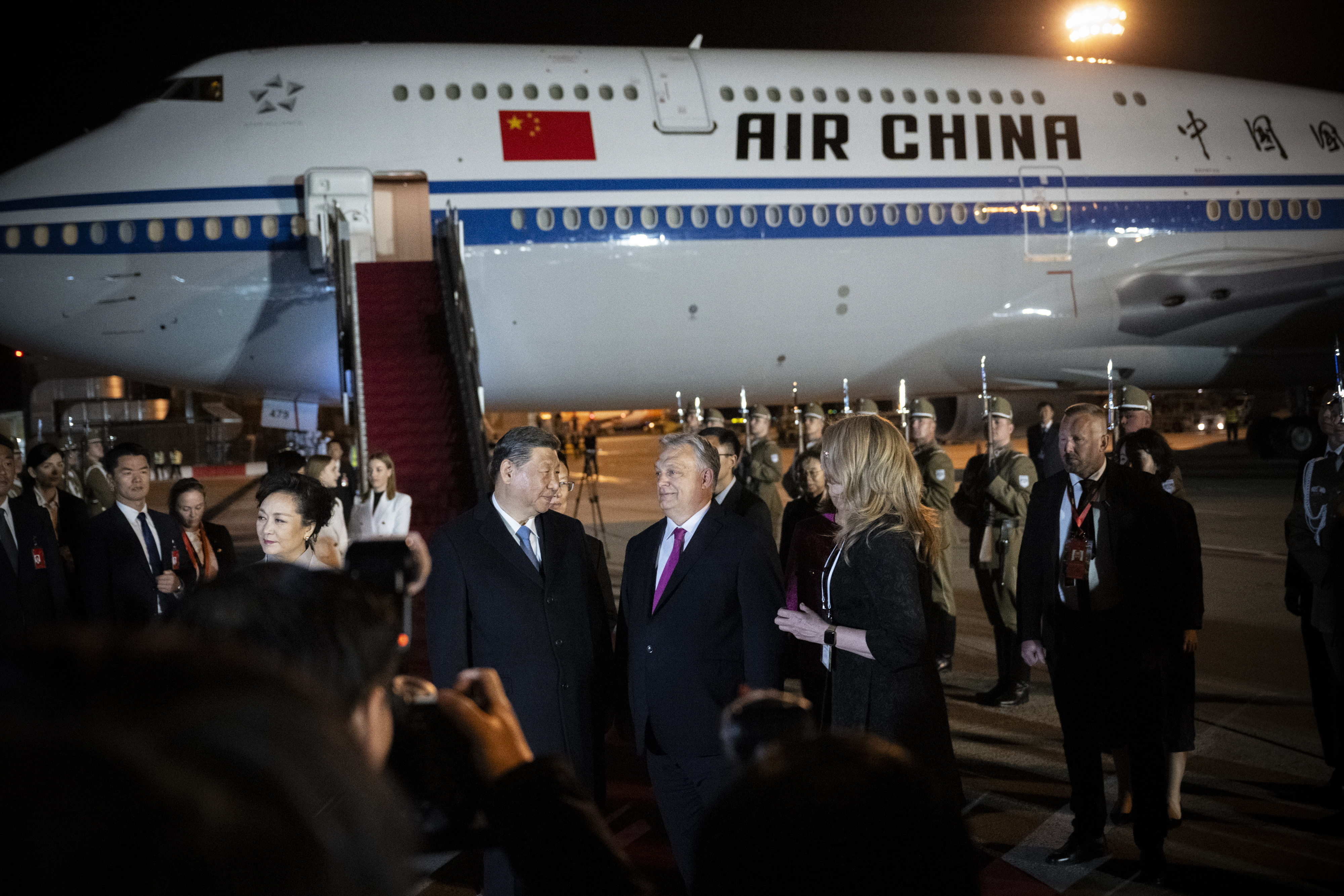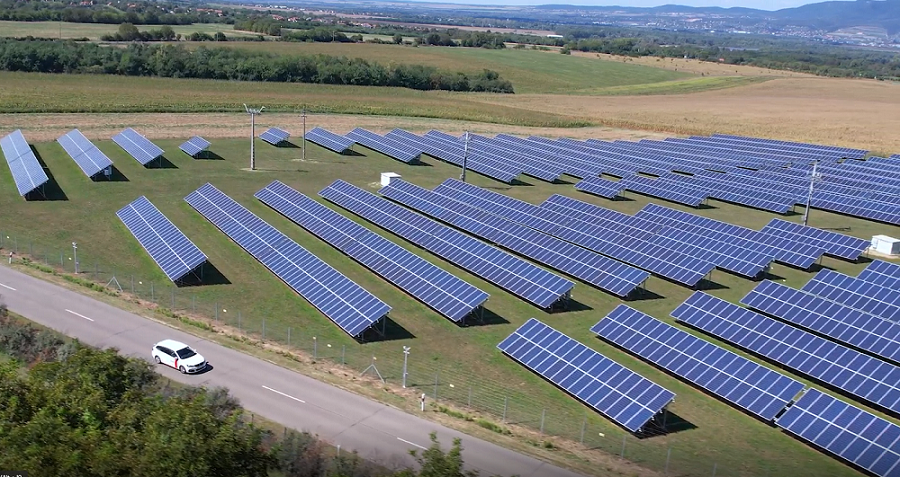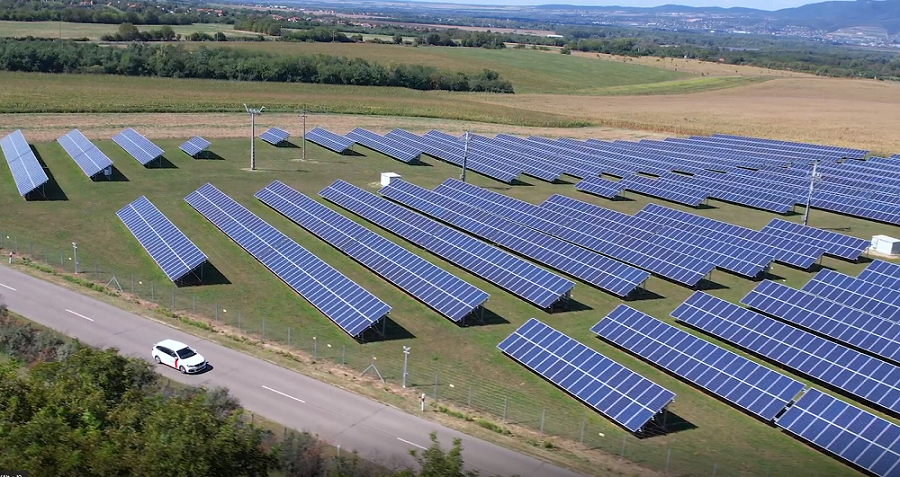Is Cabinet Mulling Action on Fuel Costs to Boost Growth?

Is another intervention on fuel on the cards in Hungary?
Photo by Condas / Shutterstock.com
While 2023 seems to be something of a write-off in terms of economic development for the government, the messaging generally conveys high hopes for the future. That will continue to rely on the auto sector and its switch to electric mobility. Currently, though, could the Hungarian economy strive for growth by potentially limiting fuel prices?
Hungary has been keen to sign deals with several, mostly Asian, investors on building battery and battery-component plants in locations throughout the country. This has sometimes proved controversial with local residents on environmental grounds, but the government has been consistent in its insistence that this is a crucial component for driving growth in the future.
Hungary’s economy, by all analytical projections, including those of the government and the National Bank of Hungary, will probably have to settle for 0% growth this year, while the optimistic upswing looking into 2024 and beyond hardly promises a rocket return to growth.
In general, the blame for the issues that currently plague the country’s economy falls, for the most part, on energy prices. Inflation will likely reach a near 20% annual average this year, recessionary risks will weigh on all sectors and the central bank, while observing its mandate, has no choice but to keep rates high.
As government officials frequently point out, the reason for all this is that Hungary, a landlocked country with little in the way of its own natural resources, relies on imports to keep the lights on. Until Jan. 24, 2022, the obvious choice was Russia, but since it brought war back to Europe, reliance on the near neighbor to the east has proven to be ever more problematic at the EU level.
Prime Minister Viktor Orbán has stated that the country is exploring alternatives, mainly natural gas from Azerbaijan through a southern pipeline, the transmission of which could be facilitated through an as-yet-to-be-built network of interconnectors in the Central European Region.
The Makó Trough
The Hungarian government recently threw in ideas about dusting off earlier abandoned projects for domestically producing natural gas. While the easily accessible sources are not sufficient for its needs, the so-called Makó trough was estimated to hold enough natural gas to cover 150 years of domestic use but had previously been abandoned on the grounds that it was not economically viable to extract it from the ground.
Currently, based on all its communication channels, the government wants to realign economic growth to rely on consumption, with more value added taxes contributing to state coffers. The barriers to that are prices and inflation, which, given the country’s energy reliance, are primarily driven by the cost of fuel.
The government had already intervened once during the COVID period and introduced a mandatory cap on auto fuel prices that distorted market processes. Initially, drivers from neighboring countries were crossing the border to buy the cheaper fuel, spiking demand and draining supply. Over time, the cap was repeatedly amended and restricted until it was eventually dropped altogether.
Now, with the government’s declared intent to combat inflation and bring down costs, as Minister of Economy Development Márton Nagy has repeatedly stated, it seems fuel costs will once more come into regulatory focus.
The government managed to upset many, apparently including those within its own ranks when it decided to revise the regulations on household solar panels. These costly investments were greatly encouraged, given that despite the initial outlay, they could make a household self-sufficient and, depending on how brightly the Sun shines, excess energy could be transferred into the main grid.
Unusual Clash
Unfortunately, it seems that the grid is not suited for the load. The suggestion was that an excess fee should be charged to homeowners with the panels, but that would put them at a disadvantage despite their efforts and outlays. This triggered an unusual clash within a government famous for its party discipline when Máté Kocsis, a prominent member of Fidesz, challenged the ministry responsible for the decree to think again.
Without any specifics yet announced, there is speculation that there may well be a new state intervention in fuel prices, with the hope of encouraging growth and consumption.
For the time being, the state has limited options. With Minister of Finance Mihály Varga saying that Hungary is effectively pulling the plug on all centrally-financed ventures, the hopes of growth must fall on domestic household consumption.
Based on the fact that the current inflation rate (which is on a downward trend but still had Hungary in an unwanted position at the top of the EU podium at 16.4% in August) will edge close to 20% this year, and the main drive for that is food prices, there is hope to be found.
Food prices are still far from being cheaper than a year ago, but they are at least decelerating and possibly bottoming out. The sector is heavily reliant on transportation, and thus, fuel costs show a moderation in pricing.
Cabinet communication continues to blame inflation on the international costs of energy and raw materials, a space where Hungary has limited capacity to have a significant impact. The war in Ukraine will likely last way longer than anticipated, and the country’s transition to electricity is still a work in progress. The government may well feel intervening in fuel costs is one of the few levers it can pull.
This article was first published in the Budapest Business Journal print issue of October 6, 2023.
SUPPORT THE BUDAPEST BUSINESS JOURNAL
Producing journalism that is worthy of the name is a costly business. For 27 years, the publishers, editors and reporters of the Budapest Business Journal have striven to bring you business news that works, information that you can trust, that is factual, accurate and presented without fear or favor.
Newspaper organizations across the globe have struggled to find a business model that allows them to continue to excel, without compromising their ability to perform. Most recently, some have experimented with the idea of involving their most important stakeholders, their readers.
We would like to offer that same opportunity to our readers. We would like to invite you to help us deliver the quality business journalism you require. Hit our Support the BBJ button and you can choose the how much and how often you send us your contributions.











